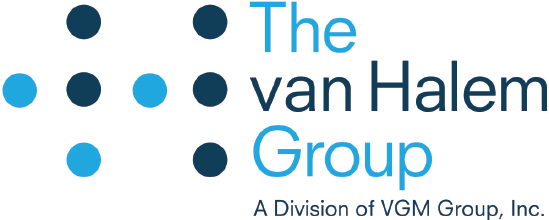 This article was written by Liz Beaulieu, originally featured in HME News
This article was written by Liz Beaulieu, originally featured in HME News
The Centers for Medicare and Medicaid Services (CMS), under the new administration, has made combating fraud, waste, and abuse a top priority—bringing the durable medical equipment (DME) industry into sharper focus. The most recent example of this initiative: the “Crushing Fraud Chili Cook-Off Competition.”
This competition aims to leverage artificial intelligence (AI) and machine learning (ML) to detect anomalies in Medicare claims data that may signal fraudulent activity. In Phase 1, CMS solicits research proposals and selects finalists. In Phase 2, those finalists gain access to claims data to apply their AI/ML models and report findings. The target: Medicare fee-for-service hospice, Part B, and DME claims.
INDUSTRY REACTION: WAYNE VAN HALEM WEIGHS IN
HME News spoke with Wayne van Halem, president of The van Halem Group and Certified Fraud Examiner, about CMS’s intensified focus on program integrity and its implications for DME providers.
“They’re decades behind on this,” he said. “The credit card industry has done this successfully for decades. I expect CMS will use the same technology to be more proactive in showing if a claim has a higher percentage of being a false claim. That’s a good thing – if the technology works.”
van Halem sees the Chili Cook-Off as a positive step – in theory – toward a more proactive fraud prevention strategy. However, he cautions that results from private payers already using AI to analyze claims have been mixed.
THE CHALLENGE OF NUANCE IN DME CLAIMS
van Halem shared a case involving a private payer that attempted to recoup payments for supplies it claimed lacked prior authorization. The twist: Prior authorization was only required for quantities above the normal threshold, and the provider had submitted claims for standard quantities.
“They have not admitted to using AI but I’m fairly certain they did,” he said. “Their AI tool likely saw that this code was on the list requiring prior authorization and the claims didn’t have a prior authorization.
“It’s a tool that can be used, but I don’t think we’re at a point where we can rely solely on it,” he continued. “There are so many nuances, especially with DME.”
CONCERNS OVER CMS’S WISER MODEL AND COMPETITIVE BIDDING
CMS is also launching the Wasteful and Inappropriate Service Reduction (WISeR) model, partnering with tech companies to test more efficient prior authorization processes for services vulnerable to fraud. Additionally, the agency has promoted its competitive bidding program as a fraud-reduction measure. van Halem says the latter is a bridge too far.
“It’s not a program that reduces fraud,” he said. “The way in which this program is designed, its sole intent is to reduce reimbursement.” van Halem argues that the current design could increase fraud risk by, for example, relaxing financial documentation requirements for bidders.
ADVICE FOR DME PROVIDERS: STAY VIGILANT
van Halem urges providers to remain alert—not just to new initiatives, but also to existing program integrity efforts. He anticipates a rise in audits this year, particularly from Unified Program Integrity Contractors (UPICs).
“What they seem to be focused on right now are caths, surgical dressings, supplies, and even respiratory claims,” he said. “If they’re being denied improperly, it’s important to talk with experts and fight those.”

